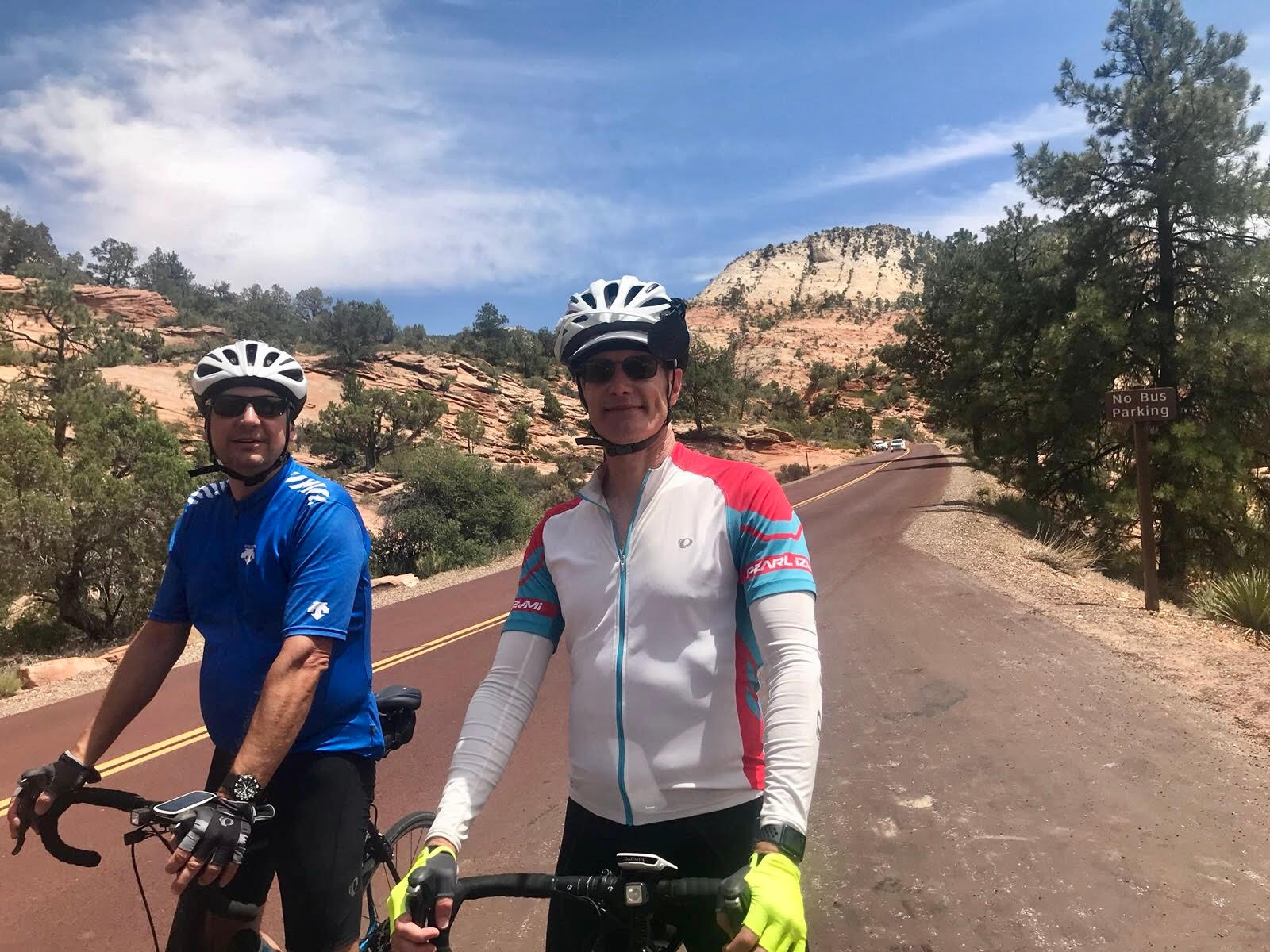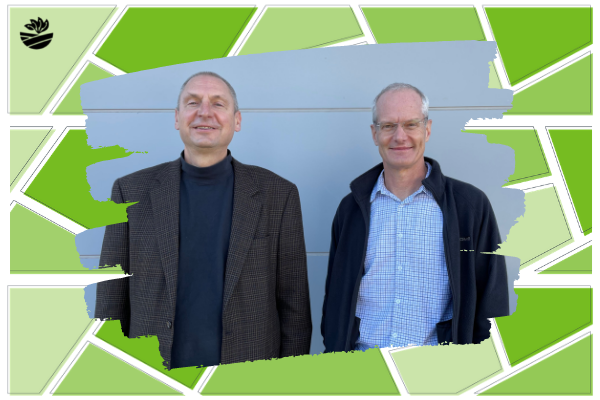When they aren’t busy changing the face of biological crop protection, Eric Ward and Scott Uknes could be up to a whole list of activities: road cycling, studying up on work cultures, or even consuming books and documentaries on European musical legends.
The AgBiome co-founders are a unique pair, each sporting an impressive resume that’s weaved them through the agbiosciences space for nearly forty years. And between their plant biology expertise and leadership experiences, there’s plenty of eyes on what they and the AgBiome team are pumping out in Durham, North Carolina.
Magnetic got a quick Q&A with the duo to learn more about their friendship, vision for AgBiome, and what they are up to in their spare time.
Magnetic: How did you two become friends, and how did that evolve into working together?
We both entered the Ph.D. plant biology program at Washington University and met the first day of new student orientation in August of 1982. We both went to grad school at Wash U for the same reason – we were interested in transforming plants, and Wash U was the best place in the world for that.
We’ve stayed best friends ever since, and have worked together for most of the intervening years. Scott came back to North Carolina from working at Bayer in Germany in April 2012 and started incubating ideas for a new company. Eric was working in the UK for Two Blades Foundation and came back a few months later.
We’re both pretty avid road cyclists, and were riding together late that summer when Scott mentioned that he was thinking about starting another company, and asked Eric if he would be interested in helping out. It turned out to be a pretty fateful bike ride…

Scott Uknes (L) Eric Ward (R)
What’s your vision for AgBiome and what’s the market opportunity?
Although biologicals have been around for some time their efficacy has not been the best. We’re showing that biological crop protection products can effectively compete with and complement synthetic pesticides. And we aim to be a significant global player in crop protection, backed by our awesome technology platform and the pipeline of new active ingredients that it’s producing. We think this opportunity is similar to that for pharmaceutical biologicals in the 1980s when Amgen, Biogen and Genzyme started working on them.
What’s something unique or interesting about your collective and individual takes on leadership and how you manage teams?
Eric: Scott and I both believe that people have to be happy to be productive and happy in the Jeffersonian sense — deep, lasting satisfaction from pursuing your goals. So we work hard here to create an environment that appeals to people’s natural intrinsic motivators.
Scott: Eric and I both are enamored with the Stanford Project on Emerging Companies, where they showed that companies with a commitment culture (commitment from the company to the employee and a commitment from the employee to the company) perform best on a whole bunch of metrics including long-term value creation and employee fun and retention. We set out to create this culture at AgBiome, and I believe we have been mostly successful. However, whatever you try to do culture-wise because people are involved, new behaviors will emerge – this makes life very interesting and fun!

AgBiome HQ
What was the last book you read, and what’s a key takeaway or insight you took away from it?
Eric: Beethoven: Anguish and Triumph, by Jan Swafford. Absolutely amazing how productive and creative the guy was despite having pretty horrible health problems. He spent plenty of time feeling sorry for himself but nonetheless managed to stay optimistic about humanity’s ability to perfect itself. He never quit, no matter how bad he felt, and the results are self-evident.
Scott: Snowblind by Ragnar Jonasson. It is a murder mystery set in a remote, isolated town, Siglufjördur, in the extreme North of Iceland. The author captures both the beauty and the loneliness of a place where people are unable to travel due to massive snowstorms in the darkness of a sunless winter. Being alone, whether due to your location, circumstances, or your attitude, can change the way you interact with others.
What was the last podcast or documentary you consumed & share a highlight from it?
Eric: I recently listened to an episode of Russ Roberts’ EconTalk with Katy Milkman, a professor at Wharton who recently wrote How to Change. It’s a critical review of the literature on habit formation. Super interesting and gave me the idea that creating an opportunity for a fresh start is a great way to launch a new habit or an initiative in an organization. I believe we have a great opportunity to do that coming out of the pandemic.
Scott: Documentary – Pavarotti by Ron Howard (2019). The film was panned by some critics, but it is very personal and inspirational. Most powerful is Pavarotti’s last performance, Nessun Dorma, which he sang after he knew he was dying from pancreatic cancer. In case you are not familiar with this work, the chorus is (translated to English) “No one will know his name, and we will have to, alas, die, die!” To which Pavorotii replies, “… I will win”. Not exactly cheery, but very powerfully human. It is unbelievable to me that he could sing this without breaking down emotionally.
Who is your mentor in the industry & how did that come to be?
Eric: I’ve had several. Scott is certainly one, and one of the most important. Another is John Rabby, who I’ve known for more than 20 years, and more than anybody helped me appreciate the importance of being focused on the customer.
Scott: Like Eric, I have several, including, most importantly, Eric. Eric provides me with daily feedback and insights, and I would simply not be the person I am nor have any success my teams have had without his regular counsel and guidance. I would also like to mention that more recently, Marijn Dekkers, our board Chair (and former CEO of Bayer AG), is having a great impact on my life. He is very smart, sophisticated, and a direct communicator, so it is easy to get feedback that you can put to work right away.
Nominate an interesting person in agriculture to be featured in our Movers & Shakers series.

